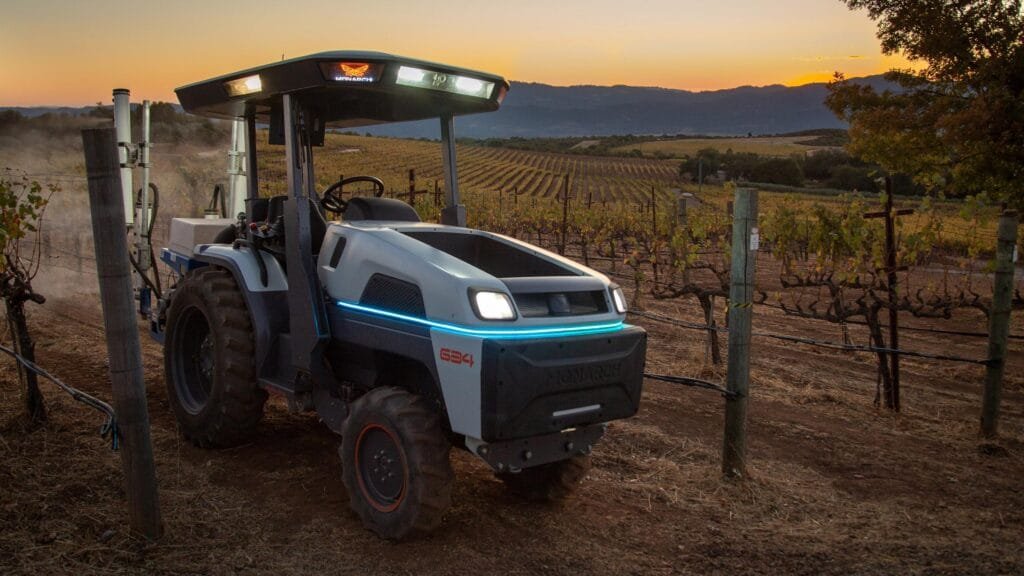Electric Tractor Startup Moonrider Secures $2.2 Million in Seed Funding
In a significant development for India’s agricultural technology sector, Bengaluru-based electric tractor company Moonrider has successfully raised $2.2 million (approximately Rs 19 crore) in seed funding. The investment round, which concluded in early January 2025, was co-led by mobility technology funds AdvantEdge Founders and Micelio Technology Fund, alongside participation from various angel investors.
Founded merely 17 months ago in August 2023, Moonrider has rapidly established itself as an innovator in the electric agricultural machinery space. The company specializes in developing heavy-duty electric tractors that aim to revolutionize farm operations through cost-effective and environmentally sustainable solutions. Farmers across India might soon witness a paradigm shift in their operational expenditures, as Moonrider claims its electric tractors cost 50% less to maintain and operate compared to traditional diesel counterparts.
The fresh capital influx will bolster Moonrider’s ambitious plans to enhance its technological prowess. Company executives delineated that the funds would primarily be channeled toward augmenting innovation in three pivotal domains: vehicle engineering, advanced software development, and proprietary battery technology. This multi-pronged approach reflects the startup’s comprehensive vision for transforming agricultural mechanization.
What distinguishes Moonrider from numerous other electric vehicle startups is its achievement of price parity with diesel alternatives – a feat that has eluded many competitors in the electric machinery segment. This accomplishment renders their tractors financially viable for cost-conscious farmers and fleet operators, potentially accelerating adoption rates across rural India. The company has already filed for a patent for its in-house battery technology, although the specifics of this innovation remain undisclosed.
The co-founders bring substantial industry acumen to the venture. Anoop Srikantaswamy and Ravi Kulkarni possess extensive experience in vehicle engineering and EV research, having previously worked with automotive giants including the Volvo Group, Ola Electric, and Olectra BYD. Srikantaswamy, who serves as CEO, emphasized their commitment to practical solutions that address real-world agricultural challenges. “Our electric tractors are meticulously designed to cater to diverse farming needs, delivering superior performance while simultaneously boosting farmer income and championing climate-friendly farm mechanization,” he stated.
The investment underscores growing confidence in the potential of electric vehicles within agricultural settings. Kunal Khattar from AdvantEdge Founders elucidated their investment rationale: “AdvantEdge’s fund thesis centres around accelerating the transition from internal combustion engines to electric vehicles. We envision electric tractors as the next category ripe for transformation, principally because they are 50% cheaper to own and maintain.” This economic advantage could potentially trigger widespread adoption, particularly in a sector where operational costs substantially impact profit margins.
Moonrider has allegedly forged strategic alliances with prominent agricultural enterprises and fleet operators, both domestically and internationally, though specific partnership details weren’t revealed in company statements. These collaborations could provide crucial market access and distribution channels for the fledgling startup as it seeks to scale operations.
The electric tractor market presents immense growth opportunities in India, where agriculture employs nearly half the workforce yet continues to rely heavily on traditional, fossil fuel-dependent machinery. By offering economically advantageous alternatives that simultaneously advance climate goals, Moonrider positions itself at the intersection of technological innovation, environmental sustainability, and economic pragmatism.
As conventional farming practices increasingly yield to technology-driven approaches, startups like Moonrider exemplify how electric mobility solutions can transcend urban transportation to transform centuries-old agricultural practices. With adequate funding now secured and technological development underway, the coming months will prove decisive in determining whether Moonrider can successfully convert its promising vision into widespread market adoption. The agricultural sector awaits with bated breath to see if electric tractors will indeed plow the path toward a more sustainable and economically viable farming future.



